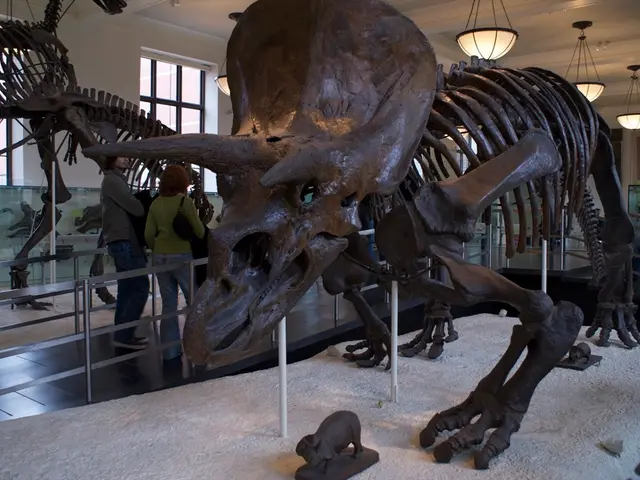Prime Minister Narendra Modi Takes Center Stage in Group Shot, Russia's Putin Stands Close to China's President Xi Jinping at Official Gathering
On the sidelines of the Shanghai Cooperation Organisation (SCO) summit, Prime Minister Narendra Modi and Chinese President Xi Jinping met in Tianjin, marking a significant step towards mending and strengthening bilateral ties.
The meeting came after the suspension of several services, including the Kailash Mansarovar Yatra and the issuance of tourist visas to Chinese citizens, during the COVID-19 pandemic. However, this year, these services have resumed, indicating a thawing of relations.
The leaders acknowledged the important decisions taken by the two Special Representatives in their Talks earlier this month. They also noted with satisfaction the successful disengagement last year and the maintenance of peace and tranquility along the border areas since then. The leaders expressed commitment to a fair, reasonable, and mutually acceptable resolution of the boundary question.
President Xi described India and China as "friends and good neighbours." He called for managing India-China ties with a strategic and long-term outlook to ensure healthy and stable bilateral development, emphasizing that the border dispute should not define the entirety of the relationship.
The leaders aim to expand common ground on bilateral, regional, and global issues and challenges, including terrorism and fair trade in multilateral platforms. Both nations agree to reopen border trade, a move seen as a way to diversify economic exchanges amidst global tariff uncertainties. China pledges to support India's requirements for rare earth minerals, fertilisers, and tunnel boring machinery.
Improved relations are expected to benefit both economies. For instance, India's electric vehicle sector could potentially see increased Chinese investment, and Chinese firms could gain broader access to Indian markets. Prime Minister Modi announced plans to resume direct flights between India and China.
The encounter carried strong geopolitical messaging amid US President Donald Trump's escalating tariff measures. This diplomatic rapprochement between India and China comes as India's ties with the US face strain due to President Trump's tariff regime, signaling a possible rebalancing of alliances, challenging years of American efforts to keep the two regional powers apart.
President Xi Jinping has not announced an official visit to India since the last BRICS meeting in Russia likely due to ongoing diplomatic caution amid improving but still delicate relations. However, recent summits like the Shanghai Cooperation Organization in Tianjin involved meetings with Indian Prime Minister Modi, emphasizing partnership without formalizing a state visit.
Prime Minister Modi underlined the importance of peace and tranquility in the border areas for the continued development of bilateral relations. The leaders' meeting in Tianjin underscores the growing recognition in both capitals that pragmatic cooperation may offer greater dividends than prolonged rivalry, especially in a shifting global order.








